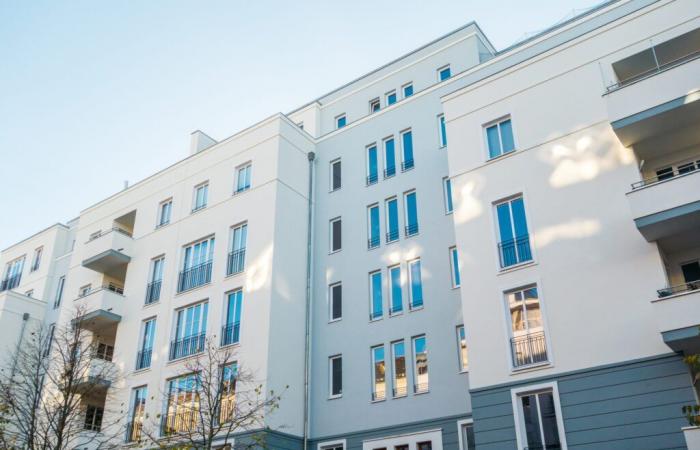In Paris, short-term rentals have been an exponential phenomenon for several years. This is a matter of concern for the co-owners concerned. The Court of Cassation clarified to what extent the bourgeois housing clause allows co-owners to limit this type of activity within their building.
176 million nights, 43 million euros in turnover, 362,000 full-time equivalents, nearly 5 billion euros in tax revenue including 300 million euros in tourist tax: these figures come from a study published by the consulting firm Deloitte in April 2024 on the activity of the Californian tourist rental giant in France. It highlights the growing impact of the activity of furnished tourist accommodation on our territory.
Paris, a flagship destination on Airbnb
The Californian start-up arrived on the French market in 2010 and disrupted the short-term rental economy. France has become Airbnb's second largest market, behind the United States. Paris has thus become a flagship destination for the Californian start-up. As early as 2015, the latter was pleased that the City of Lights had become the world capital of private rentals, with 1.8 million visitors to Paris and 44,000 rental advertisements.
Concerns within Parisian co-ownerships
A study carried out a year later by the Association for Professional Accommodation and Tourism (Ahtop), in collaboration with Harris Interactive, highlighted the concerns generated by these short-term rentals within Parisian co-ownerships. Nearly one in two respondents believe that these platforms can have negative consequences on co-ownership, particularly in terms of security (65%) and noise pollution (60%). 72% of Parisians consider they should be warned if a short-term rental project were to be implemented in their building. 71% of them would like their number to be limited. And 62% would opt for prior agreement from the trustee or the co-ownership. These concerns are far from being alleviated, with the exponential development of short-term rentals multiplying the potential nuisance.
The notion of bourgeois clause
Co-ownerships which seek to regulate or limit the activities of furnished tourist accommodation generally rely on the bourgeois housing clause which, classically inserted in a co-ownership regulation, requires co-owners or their tenants to use their lots only for residential purposes, to the exclusion of any commercial, artisanal or industrial activity. Furnished tourist rentals are defined by article D. 324-1 of the Commercial Code as being “furnished villas, apartments, or studios, for the exclusive use of the tenant, offered for rental to passing customers who makes a stay characterized by a rental by the day, week or month, and who does not take up residence there. To what extent can a furnished tourist activity be assimilated to a commercial activity and therefore made impossible by the operation of a bourgeois housing clause?
Cassation judgments favorable to co-ownerships
The Court of Cassation initially (Cass. 3e civ., 8 mars 2018, n° 14-15864 et Cass. 3e civil, February 27 2020, n° 18-14305) appeared to confirm the commercial nature of the seasonal rental activity, reinforcing the impossibility of carrying out such an activity in co-ownerships for bourgeois destinations. However, specialists pointed out that these judgments had sanctioned very specific short-term rental activities: on the one hand, furnished studios resulting from an illegal division of co-ownership lots, accompanied by a certain number of para-services. hotels and on the other hand, a rental activity carried out by a company, carried out on 39 accommodations in a building comprising a total of 60 lots.
The definition of a short-term rental activity of a commercial nature
In 2024, a new ruling from the Court of Cassation clarified to what extent a furnished tourist activity must be considered a commercial activity (Cass. 3e civ., January 25, 2024, no. 22-21455). In this case, the Court of Cassation considers that, to the extent that the activity carried out by the rental company in the building was not accompanied by any provision of ancillary services or only minor services not having the character of 'a para-hotel service, the rental activity cannot be considered as a commercial activity.
Specific criteria
The Court of Cassation clarifies the situation based on article 261 D of the General Tax Code, which defines commercial rental falling within the scope of application of VAT. In accordance with this solution, a short-term rental can only be considered a commercial activity when the rental is accompanied by at least three types of services:
-
provision of breakfast;
-
regular cleaning of premises;
-
supply of household linen;
-
reception, even if not personalized, from customers.
The frequency of tenants' comings and goings, the fact that the property appears on a rental intermediation platform, and the type of furnishing of the apartment do not allow us to conclude that there is commercial rental activity. The same applies to optional services such as the provision of cleaning services, transfers to the airport or even the provision of breakfast. The provision of these additional services, when optional, does not allow the exploitation of the property to be compared to a commercial activity.






